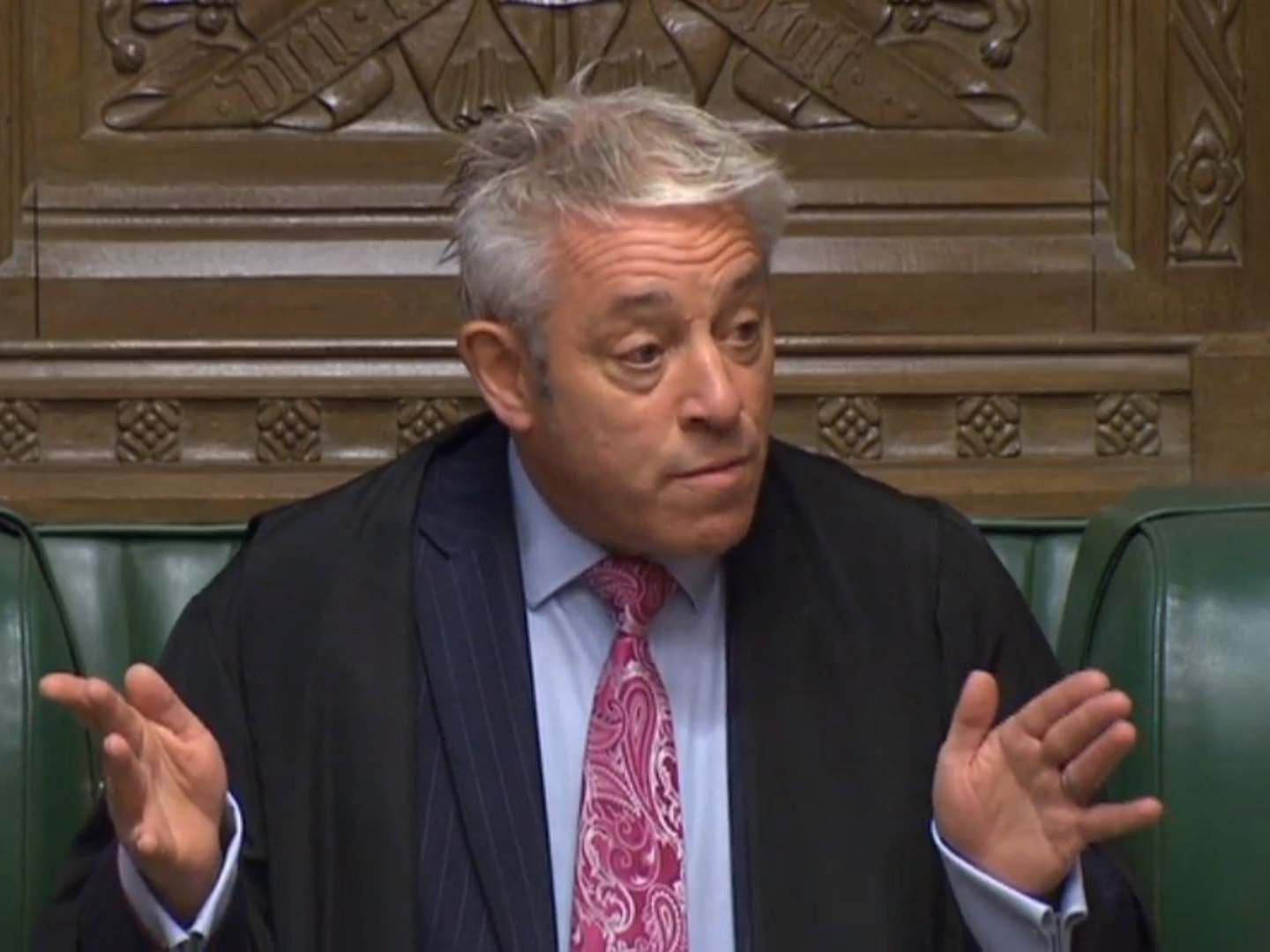Commons speaker’s powers could be curbed if Tories win election majority, minister suggests
Exclusive: A minister told The Independent it was time to consider imposing constraints on the speaker’s discretion to interpret the rules of parliament

The government could institute a review of the powers of the speaker of the Commons if Conservatives win a majority at the next election, a senior minister has suggested.
The current speaker, John Bercow, has infuriated the government with a series of rulings, which have thrown obstacles in the way of Brexit.
Most significantly, he has allowed emergency motions under a Commons rule known as Standing Order 24 (SO24) to be used to let MPs seize control of the business of the house to push through legislation limiting the PM’s room for manoeuvre.
Mr Bercow has allowed SO24 to be used to force binding votes, in a move away from the convention that debate on emergency motions ends with a “neutral” division stating simply that the house has considered the issue.
An SO24 motion was used to push through legislation forcing Theresa May to seek an extension to Brexit talks in the spring, and the tactic was employed again to facilitate the so-called Benn Act, which requires Boris Johnson to ask for another delay if he fails to secure a deal with parliamentary support within the next two weeks.
Mr Bercow – who many Brexiteers believe is a committed opponent of EU withdrawal – has also permitted the use of the formerly little-known procedure of a “humble address” to the Queen to enable opposition parties to force the release of secret government documents.
And he has massively increased the number of urgent questions taken in the Commons, forcing ministers to the despatch box to face lengthy grillings on Brexit policy.
Speaking on condition of anonymity, the minister told The Independent it was time to consider imposing constraints on the speaker’s discretion to interpret the rules of parliament.
“Parliament has a rulebook and it has conventions about its procedures that have developed over a long period for a very good reason,” said the minister.

Independent Minds Events: get involved in the news agenda
“You can’t have someone in that position getting up in the morning and deciding that he is going to do things differently and bend the rules as he wishes.
“When you have a rogue speaker, he is all-powerful. I think we need a shake-up of the rules and I think it’s something we need to look at after the election if we get a majority.”
It is not clear how any government could act to curtail the speaker’s discretion.
The speaker is the chief officer and highest authority in the House of Commons, and is elected to his position by MPs. As chair of the lower house, his position is not subject to the authority of the executive.
However, it is possible that a ruling party with a large majority in the Commons could encourage its MPs to press for some kind of parliamentary review of the practices and conventions relating to the role.
Any such move would take place under a future holder of the post, as Mr Bercow has announced he will stand down on 31 October.
Following Boris Johnson’s humiliation at the hands of the Supreme Court over his suspension of parliamentary sittings, the minister suggested that a Brexit-backing private individual could follow the lead of campaigner Gina Miller and take legal action against those accused of delaying EU withdrawal.
“I think someone should take parliament to court for failing to deliver on the result of the referendum and take the speaker to court for bending the rules of parliament to try to stop it,” said the minister.
Asked about the prospect of a review of his role, the speaker’s office said: “This is news to us.”
Join our commenting forum
Join thought-provoking conversations, follow other Independent readers and see their replies
Comments
Bookmark popover
Removed from bookmarks